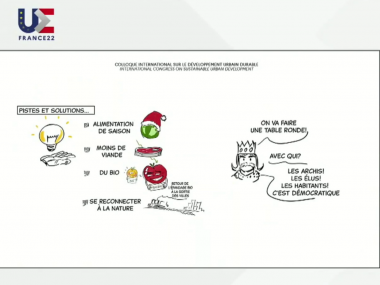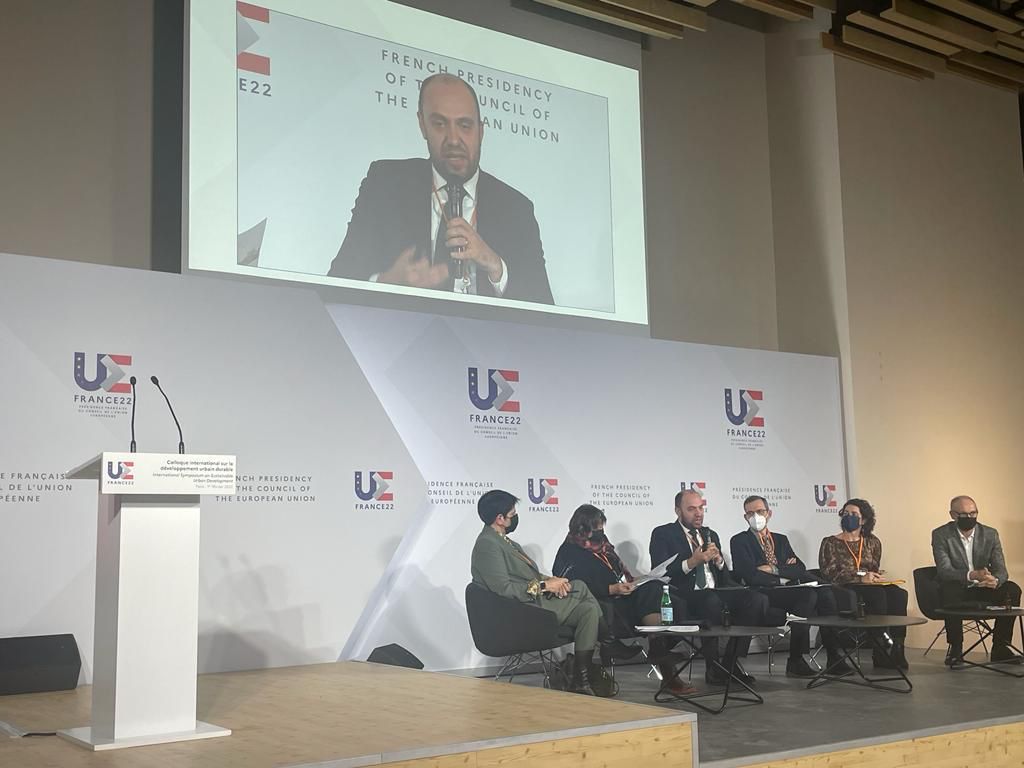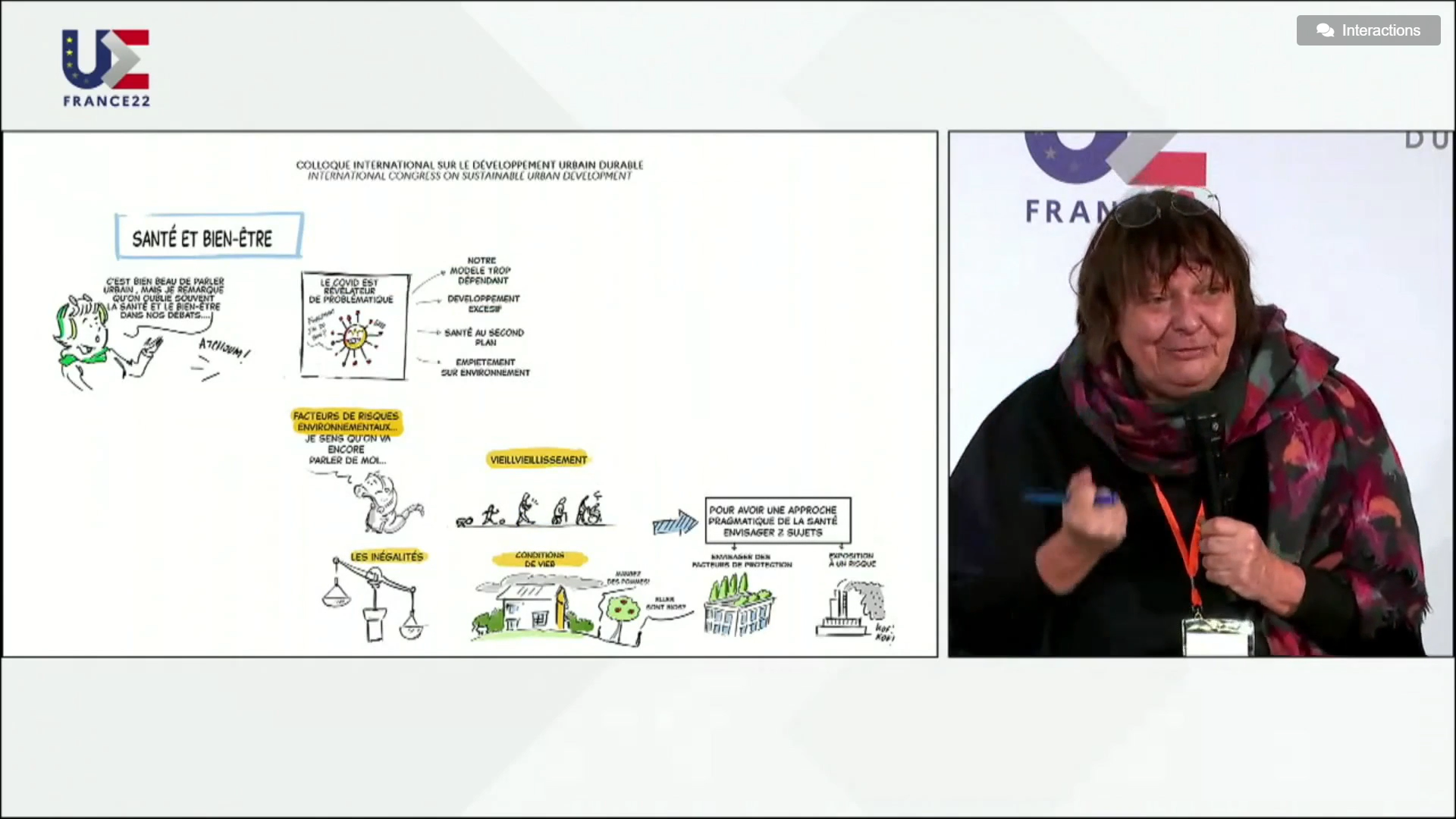Food Corridors contribution to the Conference on Sustainable Urban Development by the French Presidency of the Council of the European Union
Edited on
08 February 2022Making health a cross-sectoral priority, taking action regarding the food sector towards sustainable approach was some of the conclusions of the workshop in which Food Corridors, through the lead partner Comunidade Intermunicipal da Região de Coimbra (Portugal) participated together with other organisations such as Food and Agriculture Organization (FAO).

Organized by the French Ministry of Ecological Transition, this conference was an opportunity for European urban development actors to share a global and coordinated approach and to disseminate inspiring and stimulating practices.
According with the organization of this event more than 60% of Europeans live in cities with more than 50,000 inhabitants, which is why it is so important for Member States to provide them with a pleasant living environment and to promote sustainable urban development. Organized by the Ministry of Ecological Transition, this conference is an opportunity for European urban development actors to share a global and coordinated approach and to disseminate inspiring and stimulating practices.
Thinking about urban development at all scales
From the neighborhood to the catchment area, the transformation of metropolises, conurbations and large, medium-sized or small cities is now being played out at different territorial scales through the interplay of complementarities and cross-impacts. The growing globalization of trade adds an additional dimension to this pattern, requiring urban space to be considered on a European and international scale. In this context, cooperation between Member States, but also between European regions, is essential to ensure desirable urban futures for all. With this global vision, the conference will be in line with other European initiatives, in particular the New Leipzig Charter. Adopted in December 2020 at a meeting of ministers responsible for urban development and territorial cohesion, this charter enshrines several key principles for the governance of cities, including the integrated approach and multi-level governance. It also responds to "new" challenges, such as migration, pandemics, digital technology and climate change.
Building a European corpus for the World Urban Forum
This event is an opportunity to share the tools and methods developed in Europe for sustainable urban development, for the transforming city promoted by the new Leipzig Charter: a just, green and productive city. This sharing will make it possible to build a European corpus, based on a global approach and inspiring practices. It will be carried forward by the French Presidency to the World Urban Forum to be held in June 2022 in Katowice, Poland, thus positioning Europe as a spearhead of global urban development. The practices implemented by France, resulting from the "Living in the France of Tomorrow" initiative, and the prospects that arise from it will be discussed, amplified and enriched by the experiences of other member countries.
Operational solutions in debate
The afternoon session discussed some of the work of the French Partnership for Cities and Territories (PFVT), a platform for exchanging and promoting French expertise in urban development at the international level.
The participants, all actors in urban development in Europe (public institutions, administrations, local authorities, elected representatives, private sector, associations, research organizations, etc.) worked on concrete proposals in three major areas: cross-border and European cooperation; urban project management; well-being, health and food. Representing Food Corridors in the Workshop on "Well-being, health and food" , was Jorge Brito from Comunidade Internacional da Região de Coimbra (PT).

Emphasis was be placed on how these contributions can be linked to the European and global urban agendas, through the establishment of partnerships and shared experiments between actors from member countries.
A round table shared the main outputs of each workshop, beign the main one from our workshop: Making health a cross-sectoral priority, taking action regarding the food sector towards sustainable approach.

Once again, this is a major challenge in the run-up to the next World Urban Forum in Katowice.
 Submitted by Vera Lopes on
Submitted by Vera Lopes on
